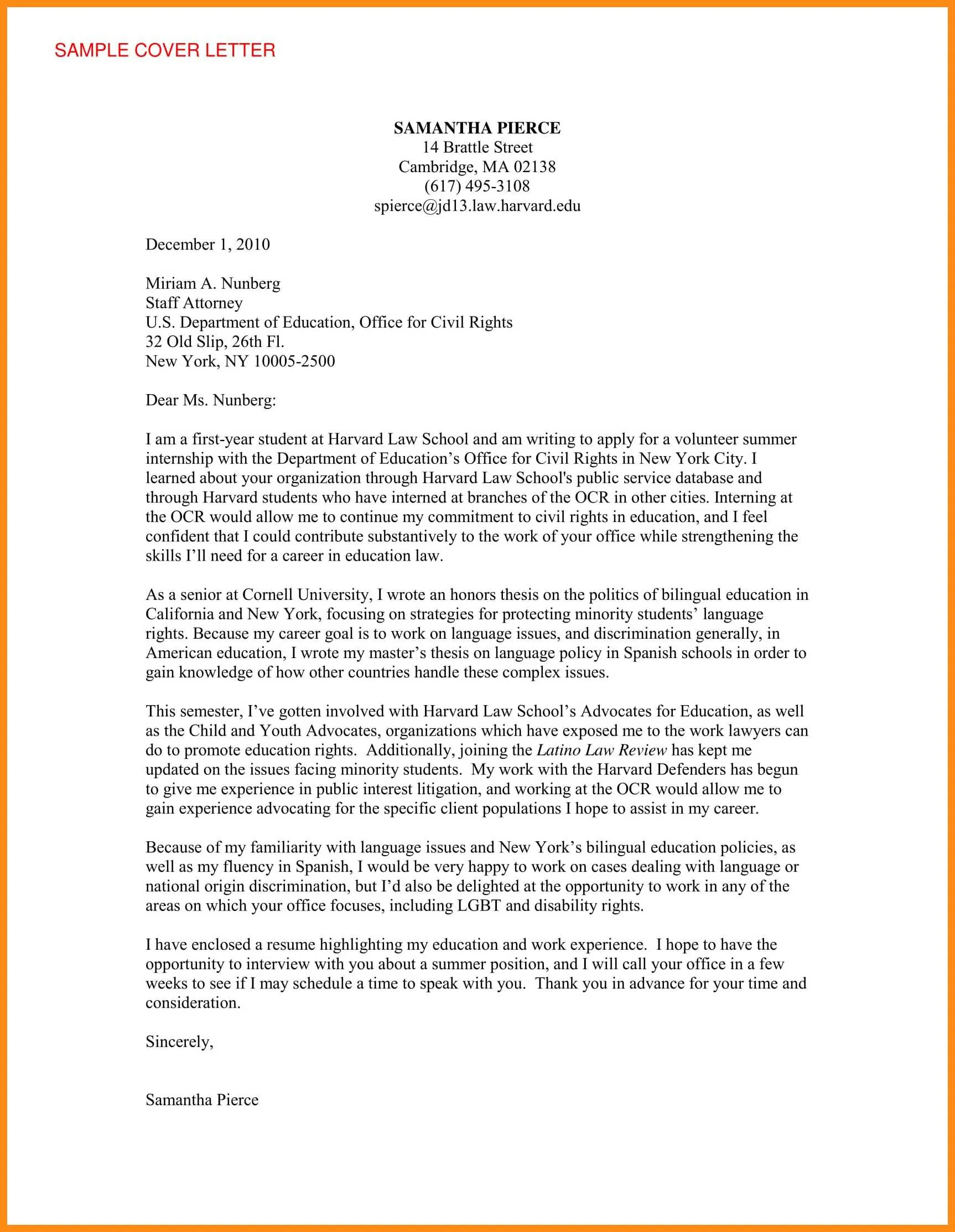Why a Bilingual Cover Letter Matters
In today’s globalized world, being bilingual is a valuable asset, and a bilingual cover letter is your opportunity to showcase this advantage. It’s more than just listing your language skills; it’s about demonstrating how these skills can benefit the employer. A well-crafted bilingual cover letter can significantly increase your chances of landing an interview by immediately setting you apart from other candidates. It tells a story of adaptability, cultural understanding, and an ability to connect with a wider audience. Highlighting your bilingualism is not just about what you know but also about the value you bring to the company. In a competitive job market, this can make all the difference.
Highlighting Your Language Skills
Your cover letter should explicitly state which languages you speak and the level of proficiency you possess. Don’t assume the reader will automatically understand your language abilities. Be clear and concise, providing the necessary details that will help them understand your language proficiency.
Selecting the Right Language
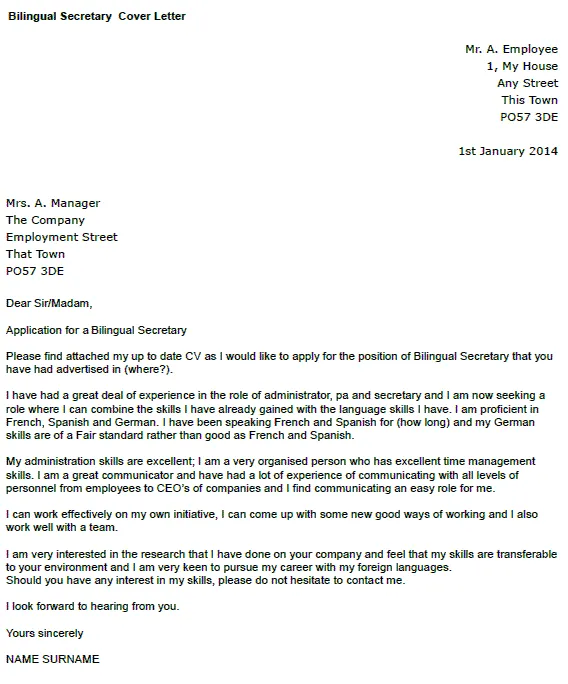
When listing your languages, it’s essential to consider the job requirements and the company’s needs. Prioritize the languages that are most relevant to the role. Focus on the languages that will add the most value to the position. If the job requires fluency in Spanish and you also know French, list Spanish first. If the role has no specific language requirements, consider listing the languages that are most commonly used in international business, such as English, Spanish, French, Mandarin, or German. This will also demonstrate your awareness of international business environments.
Quantifying Your Proficiency
Don’t just say you’re fluent. Use standardized language proficiency scales like CEFR (Common European Framework of Reference for Languages), TOEFL scores, or other recognized certifications to quantify your skills. For instance, specify your level of proficiency as ‘C2’ for a native-like level or ‘B2’ for an upper-intermediate level. Include any relevant certifications you have obtained. If you don’t have formal certifications, you can describe your proficiency as ‘fluent,’ ‘proficient,’ ‘intermediate,’ or ‘conversational.’ The key is to give the reader a clear understanding of your ability. Where possible, describe your abilities using examples: ‘I am fluent in Spanish, able to conduct business negotiations in Spanish.’ This level of detail adds weight to your claims.
Showcasing Bilingual Benefits
Bilingualism offers many advantages, both for the candidate and the employer. You should highlight these benefits in your cover letter. Think about what the company values and tailor your examples to show how your skills align with those values. Demonstrate that your language skills are not just a hobby but are relevant to your professional experience and the needs of the job.
Enhanced Communication Skills
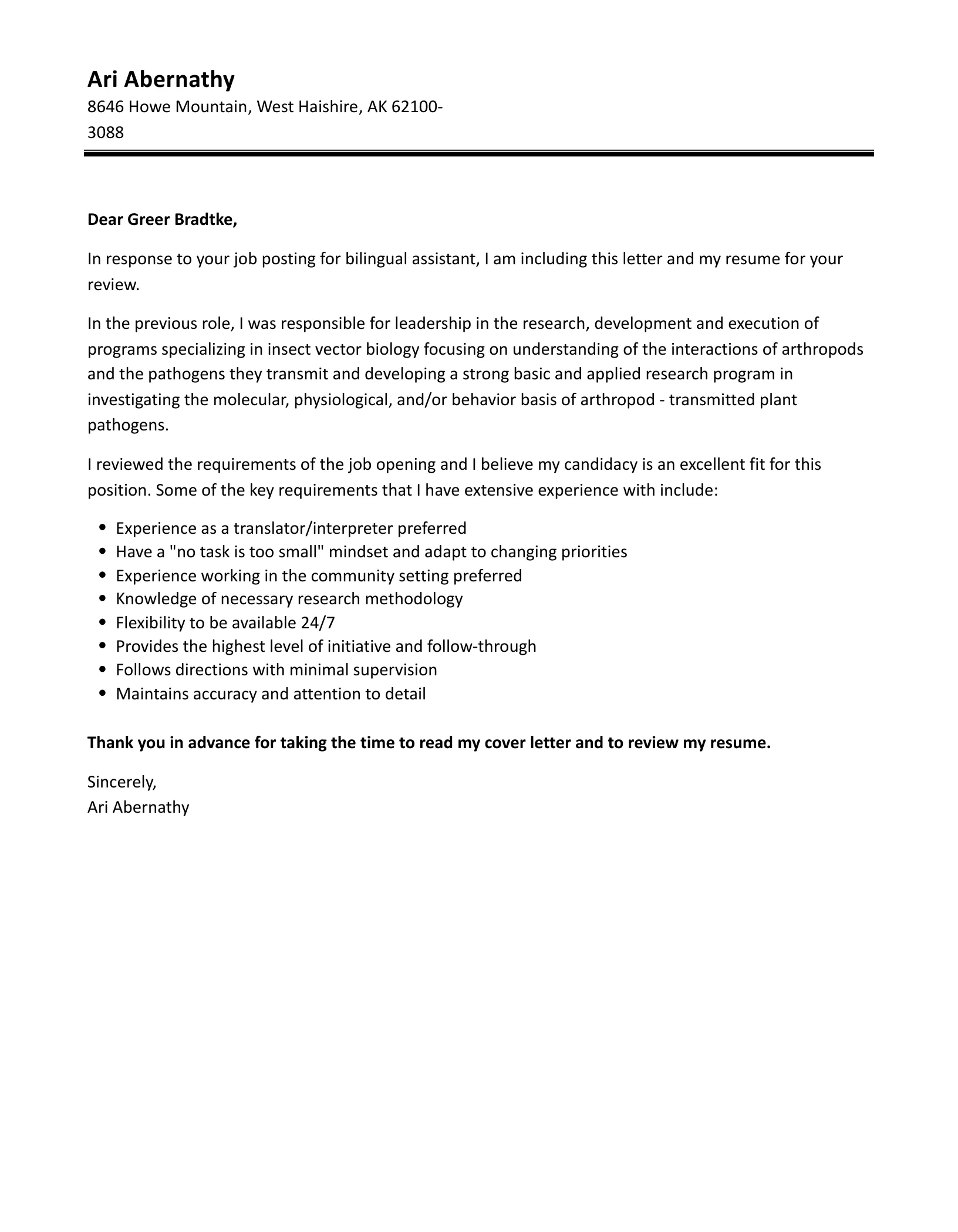
Bilingual individuals often possess superior communication skills. They can communicate effectively with a broader range of people, understand different cultural nuances, and adapt their communication style to different contexts. This adaptability is particularly valuable in international business environments. Provide specific examples to show how your bilingualism has helped you communicate effectively with diverse groups. This could include experience with international clients, cross-cultural collaborations, or any instance where your language skills enhanced communication effectiveness.
Increased Marketability
Bilingual candidates are more marketable, especially in industries that require international communication or work with diverse customer bases. Many companies are actively seeking bilingual employees. Highlight any experiences where your language skills gave you an edge or contributed to a successful outcome. Mention the specific industries where bilingual skills are particularly valuable. For example, if you are applying for a marketing position, mention how your Spanish skills will allow you to understand and communicate with the Hispanic market.
Tailoring Your Letter
A generic cover letter won’t cut it when trying to stand out. It is essential to tailor your cover letter to the specific job and the company. Research the company to understand its values, its clients, and its global presence. Then, demonstrate how your bilingual skills specifically align with their needs. Tailoring your cover letter is not just about including the right keywords; it is about showing that you understand the company and its mission.
Adapting to the Target Audience
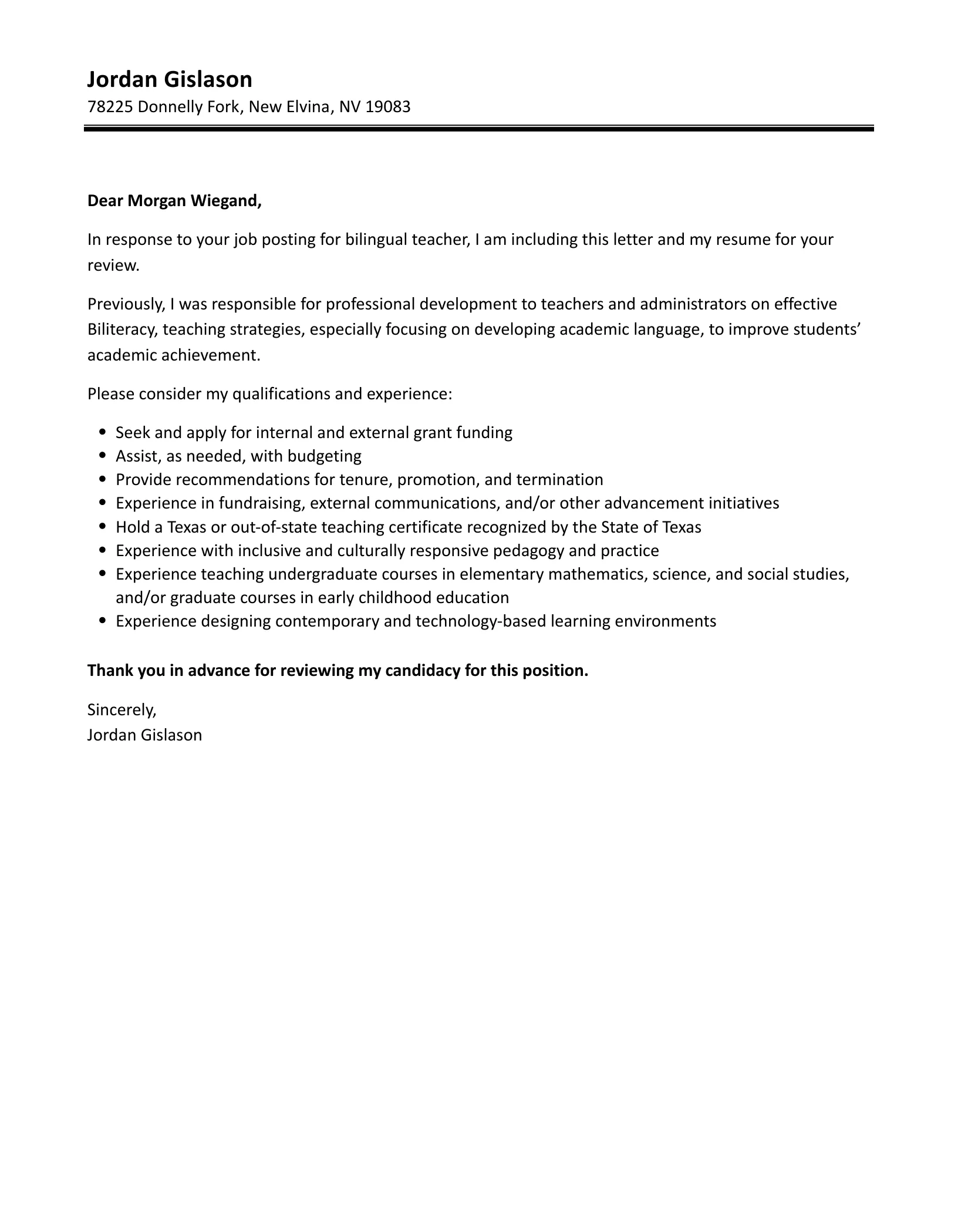
Consider the target audience and adjust your language and tone accordingly. If the job is with a global company that values formality, maintain a professional tone. If the company culture is more relaxed, your cover letter can reflect that, but always remain professional. Make sure the language you use is appropriate for the context. If you are applying to a company where English is the main language, ensure your English cover letter is flawless. Proofread carefully to avoid any errors that might undermine your credibility.
Formatting and Tone
Your cover letter should be well-formatted, easy to read, and visually appealing. Use a professional font, and keep paragraphs concise. Ensure the tone matches the company’s culture and the job description. Your tone should be professional, confident, and enthusiastic. Avoid being too casual. The tone you set in your cover letter is a reflection of your personality. Let your passion for the role and your language skills shine through. You may want to include a short paragraph that shows how excited you are to apply and the benefits that your skills will bring to the organization.
Key Sections to Include
A well-structured cover letter should include specific sections to showcase your qualifications effectively. These sections should be logically organized and easy to follow. The structure of your cover letter will increase your chances of having the recruiter read it completely and understand what you offer.
Header and Contact Information
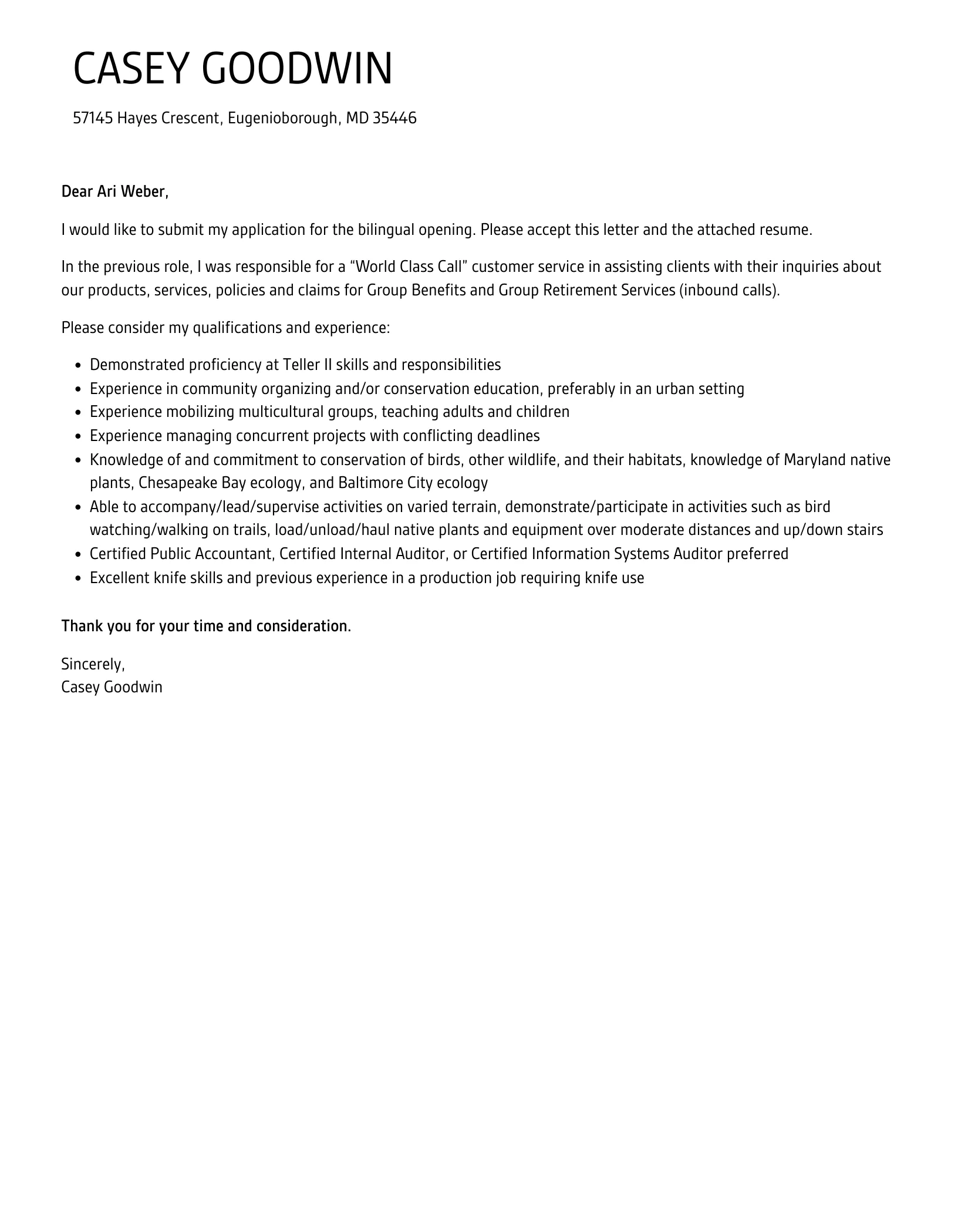
Start with your contact information: name, address, phone number, and email address. Include the date and the recipient’s name and address. Ensure all the information is accurate and up-to-date. Keep the format clean and professional. The header is the first part of the cover letter the hiring manager will see, so make sure it’s clean and clearly presents your contact information. If you’re applying via email, ensure that your email address is professional.
Opening and Introduction
Your opening should immediately grab the reader’s attention. State the position you’re applying for and how you learned about it. Clearly state your bilingual capabilities right away. Briefly summarize your key skills and qualifications, focusing on how your language skills make you a strong candidate. Show your enthusiasm for the position and the company. If you can refer to a specific need of the company where your bilingual skills could make a difference, you’ll be even more successful.
Body Paragraphs and Skills
The body of your cover letter is where you detail your skills and experiences. Use this section to expand on your key qualifications. Provide specific examples that demonstrate your bilingual abilities. The examples should focus on your successes in previous roles. Mention any achievements or quantifiable results. Tailor the examples to align with the job description, showcasing how your skills meet the employer’s needs. Explain what you know, and, even more importantly, what you have done that demonstrates those skills. Keep paragraphs concise and easy to read.
Closing and Call to Action
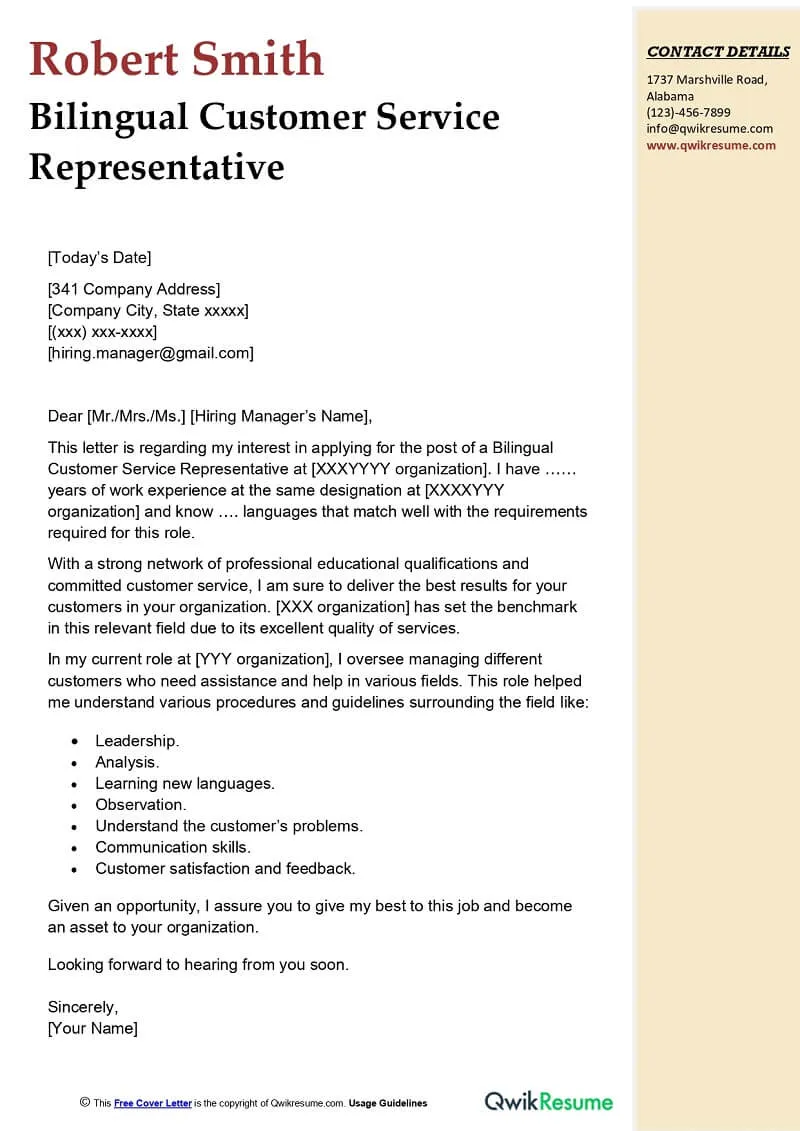
In your closing paragraph, reiterate your interest in the position and the company. Summarize your key qualifications and why you are a good fit. Include a clear call to action, such as asking for an interview. Thank the reader for their time and consideration. Proofread your cover letter and make sure there are no errors. The closing is your final chance to leave a positive impression, so end on a strong and confident note. Offer an open invitation for them to contact you, and state how eager you are to discuss the opportunity.
